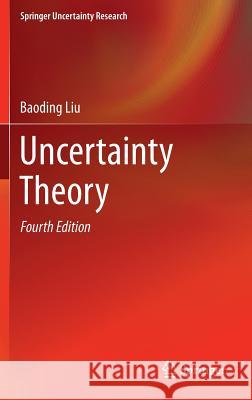Uncertainty Theory » książka
Uncertainty Theory
ISBN-13: 9783662443538 / Angielski / Twarda / 2014 / 487 str.
When no samples are available to estimate a probability distribution, we have to invite some domain experts to evaluate the belief degree that each event will happen. Perhaps some people think that the belief degree should be modeled by subjective probability or fuzzy set theory. However, it is usually inappropriate because both of them may lead to counterintuitive results in this case. In order to rationally deal with belief degrees, uncertainty theory was founded in 2007 and subsequently studied by many researchers. Nowadays, uncertainty theory has become a branch of axiomatic mathematics for modeling belief degrees. This is an introductory textbook on uncertainty theory, uncertain programming, uncertain statistics, uncertain risk analysis, uncertain reliability analysis, uncertain set, uncertain logic, uncertain inference, uncertain process, uncertain calculus, and uncertain differential equation. This textbook also shows applications of uncertainty theory to scheduling, logistics, networks, data mining, control, and finance.











